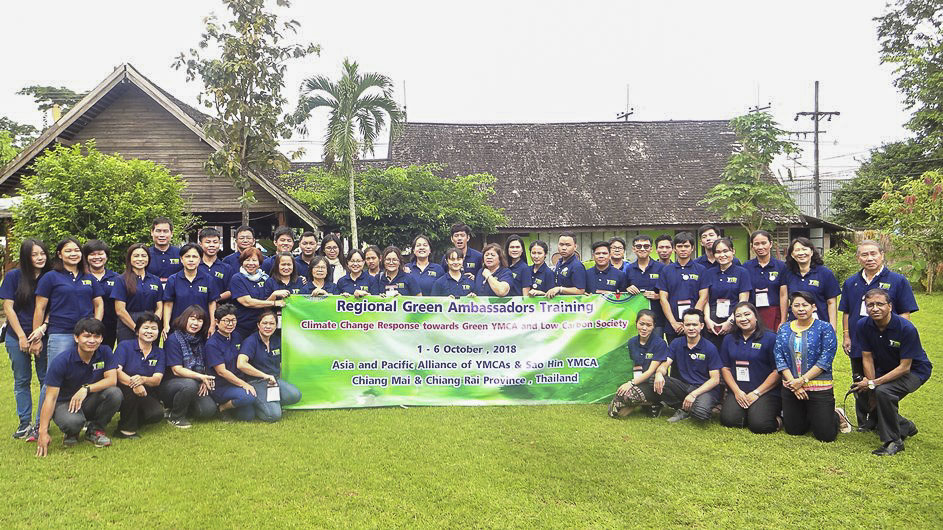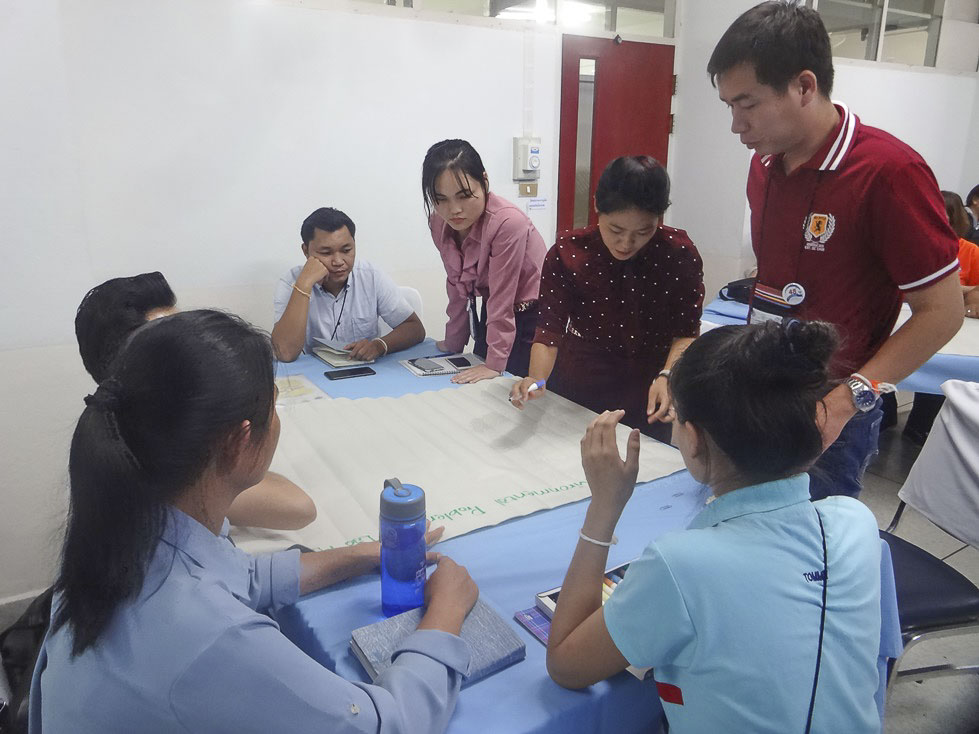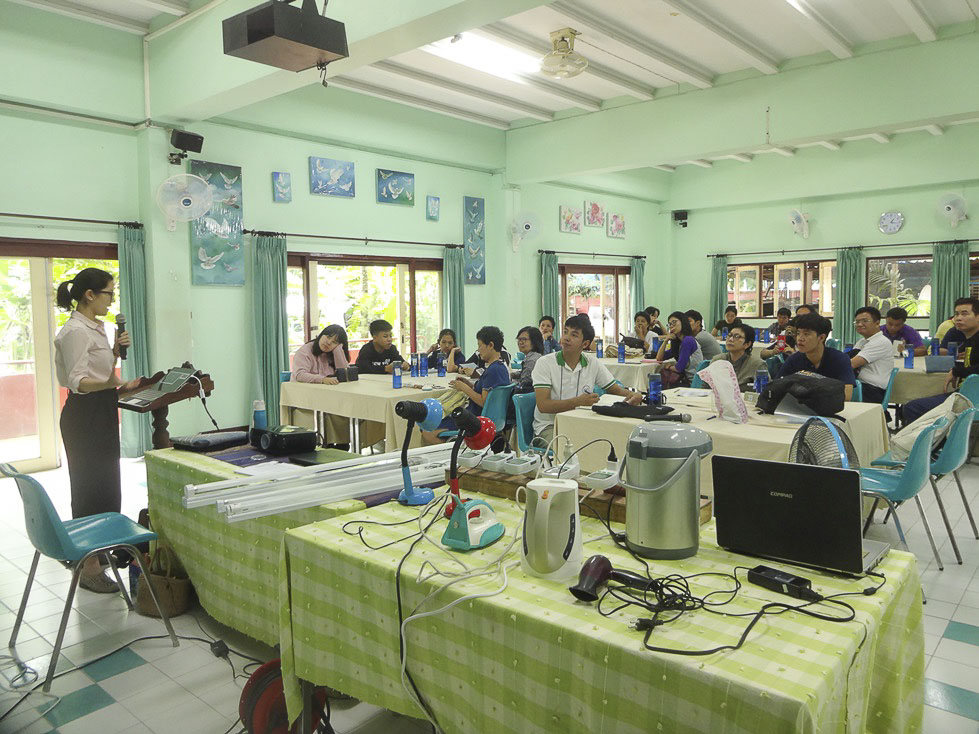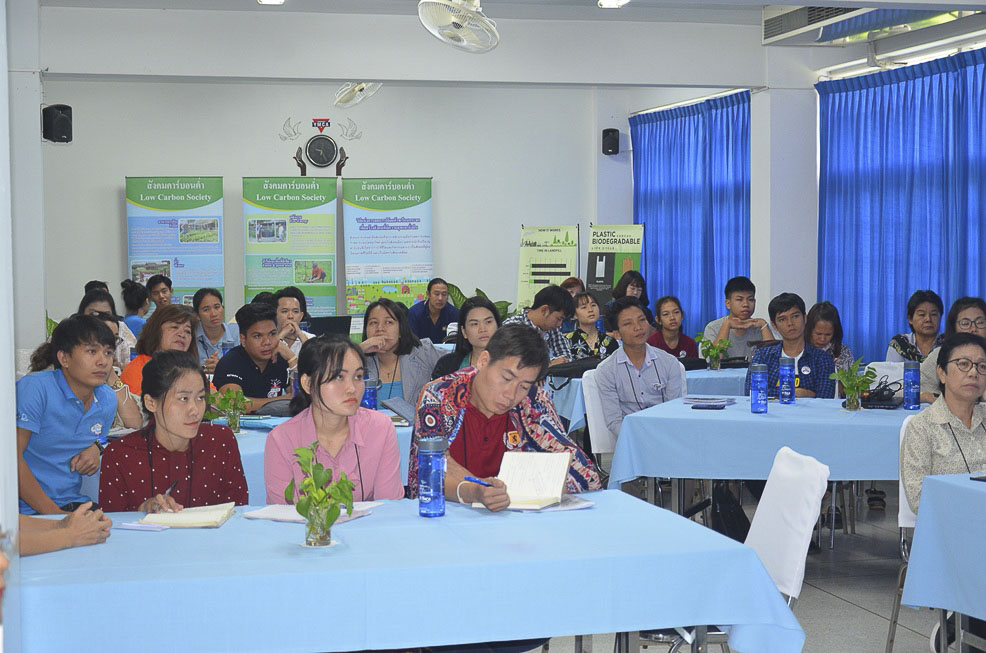APAY Green Ambassadors Learn About Climate Change
Last Updated (Tuesday, 09 April 2019 12:27)

Thirty-one (31) participants from various YMCAs and universities from five countries; Laos, Myanmar, South Korea, Philippines and Thailand, attended the Regional Green Ambassadors Training held last October 1-6, 2018 in Chiang Mai and Chiang Rai, Thailand.
The 5-day training organized by the Asia and the Pacific Alliance of YMCAs (APAY) in partnership with Sao Hin YMCA, branch of Chiang Mai YMCA was filled with discussions on different environmental issues and experiential learnings on climate change education and response towards a green YMCA and a low carbon society.
 The learning sessions began with a morning devotion and bible reflection led by the Sao Hin YMCA partner organization, KLDP (Karen Leadership Development Program), who focused on the message of the book of Genesis emphasizing the role of every individual as stewards of God’s creation. After the devotion, the participants had experiential learnings facilitated by YMCA Staff who brought them around the eight (8) exhibition rooms of the Environment Learning and Energy Resource Center of Sao Hin YMCA in Chiang Mai.
The learning sessions began with a morning devotion and bible reflection led by the Sao Hin YMCA partner organization, KLDP (Karen Leadership Development Program), who focused on the message of the book of Genesis emphasizing the role of every individual as stewards of God’s creation. After the devotion, the participants had experiential learnings facilitated by YMCA Staff who brought them around the eight (8) exhibition rooms of the Environment Learning and Energy Resource Center of Sao Hin YMCA in Chiang Mai.
The exhibition rooms featured the Situation of the Environment; the increasing concentration of Carbon in the atmosphere that causes greenhouse effect and global warming, the sources of energy; Coal, Wind, Hydro and Solar, the sources of carbon and other artificial chemicals (CFCs) in the atmosphere due to the burning of fossil fuels and coals to produce electricity, to run vehicles and other manufacturing industries, the interconnectedness of air, water and land pollution affecting natural life cycle and biodiversity, the effects of mining, deforestation and garbage pollution. These exhibits awaken the consciousness of the participants about the worsening situation of the environment thus the call for Climate Change Action and Response.
 The exhibit taught the participants to practice responsible ways on reducing carbon emission like garbage management and waste reduction, by practicing the 1 A and 3 R’s (Avoid, Reduce, Reuse, Recycle) and the practices of saving energy; “Switch Off, Unplug, Adjust and Change to lower energy emitting device like LED lights and TV and inverter air-conditioning units”. The participants were also encouraged to begin with conducting a Carbon Audit in their respective YMCAs and schools or household which will determine their baseline of Carbon Emissions and after which, setting a target on how much carbon they would reduce on a targeted period of time.
The exhibit taught the participants to practice responsible ways on reducing carbon emission like garbage management and waste reduction, by practicing the 1 A and 3 R’s (Avoid, Reduce, Reuse, Recycle) and the practices of saving energy; “Switch Off, Unplug, Adjust and Change to lower energy emitting device like LED lights and TV and inverter air-conditioning units”. The participants were also encouraged to begin with conducting a Carbon Audit in their respective YMCAs and schools or household which will determine their baseline of Carbon Emissions and after which, setting a target on how much carbon they would reduce on a targeted period of time.
Another highlight of the training was the homestay experience and exposure in the Khunlao Village in Chiang Rai Province, Thailand. This village shows the best example of community engagement in forest preservation and local social enterprise. The villagers, assisted by a group named MiVana, became local coffee growers and formed a corporation that sells the organic coffee all over Thailand and other parts of the world. They take care of the forest areas where they plant their coffee trees which produce the best beans because it is grown under the shade of the big trees. After the visit to the organic coffee forest, the group was welcomed by wonderful dancing performances of the children of the Y Green School at Khunlao. This school promotes Sufficiency Economy Philosophy among the village children, teaching them about the importance of agriculture, living a simple but happy life, appreciating nature and understanding what it is to be united in taking care of one another and their community.
 After the very inspiring and encouraging learnings in the first three days, the participants presented their best practices on environmental protection which continued to discussions on different Climate Change issues that each of their country is facing at present. After the discussions, the groups conducted a workshop and planning of action response which narrowed down to the three common agenda; 1. Carbon Audit (Reduction of Carbon Emission), 2. Climate Change Education and 3. Garbage Management. These common agenda will be the action points of the 31 Green Ambassadors when they get back to their respective communities.
After the very inspiring and encouraging learnings in the first three days, the participants presented their best practices on environmental protection which continued to discussions on different Climate Change issues that each of their country is facing at present. After the discussions, the groups conducted a workshop and planning of action response which narrowed down to the three common agenda; 1. Carbon Audit (Reduction of Carbon Emission), 2. Climate Change Education and 3. Garbage Management. These common agenda will be the action points of the 31 Green Ambassadors when they get back to their respective communities.
The training was capped with an inspiring sharing session of memorable stories of the participant’s experiences. Towards the end, Teacher Dr. Wasan, a director of the Chiang Mai YMCA, encouraged the Green Ambassadors to always think that it is our divine mandate to protect and preserve creation. He emphasized that a single tree cannot be a forest so we must recognized the unity in diversity in working together towards living in harmony with nature.
Ma Magda Gana, YMCA of Makati, Philippines






